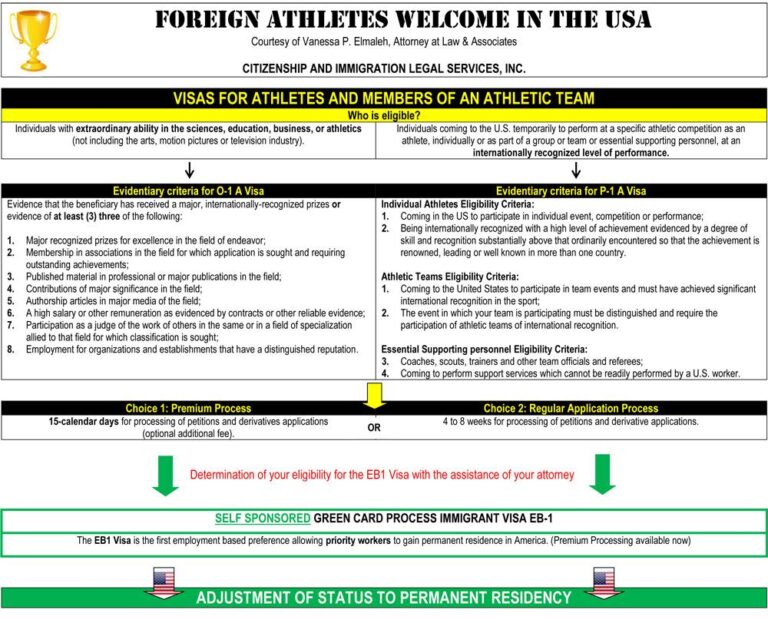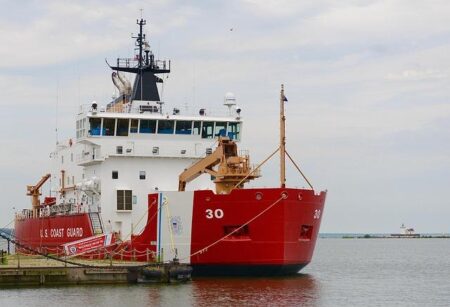Essential Guide to U.S. Visa Procedures for International Athletes
Visa Essentials for Foreign Athletes Competing in the United States
For athletes from around the globe aiming to showcase their talents in the United States, securing the appropriate visa is a fundamental prerequisite.The P-1 visa is the primary option tailored for athletes who have achieved international acclaim and are coming to the U.S. to compete at a high level. This visa not only covers the athletes themselves but also extends to vital support personnel such as coaches and trainers, ensuring they can enter the country legally and focus on their sporting commitments without administrative distractions.
The application demands extensive evidence, including documentation of the athlete’s global standing, a clear description of their role in the event, and an official invitation or contract from a U.S.-based sports entity.
Step-by-Step Overview of the Visa Application Process
Applying for a U.S. visa as an international athlete involves several critical stages:
- Gathering proof of athletic excellence, such as rankings, awards, and media recognition.
- Securing endorsements from recognized sports federations or associations that verify the athlete’s status.
- Submitting Form I-129 through the sponsoring organization to petition U.S. Citizenship and Immigration Services (USCIS) for approval.
- Scheduling and attending an interview at a U.S. embassy or consulate, which often includes detailed background checks.
| Visa Category | Intended Use | Average Processing Duration |
|---|---|---|
| P-1 | Elite athletes and essential support staff | 2 to 4 months |
| O-1 | Individuals with extraordinary abilities, including top-tier athletes | 2 to 3 months |
| B-1 | Short-term visitors for training or consultations | 1 to 2 months |
Proper planning and a solid grasp of these requirements can definitely help athletes and their teams navigate the visa process efficiently, reducing the risk of delays that could disrupt training or competition schedules.
Key Documentation and Application Insights for Athletes
Understanding the nuances of the visa application is vital. Most athletes will apply under the P-1A visa for internationally recognized competitors or the O-1 visa for those with exceptional abilities in sports. Both require a petition filed with USCIS, typically sponsored by a U.S.-based sports organization or team.
The process includes submitting the petition, attending a consular interview, and completing biometric data collection. To facilitate a smooth application, athletes should compile a detailed portfolio including:
- An official invitation or contract from the U.S. sports team or event organizer.
- Evidence of athletic accomplishments such as awards, rankings, and media coverage.
- Valid personal identification documents, including a passport and recent photographs.
- Completed visa petition forms (Form I-129 for P-1A or O-1 categories).
- Proof of financial backing or sponsorship letters.
| Document | Purpose | Best Practices |
|---|---|---|
| Invitation Letter | Confirms athlete’s participation | Must be on official letterhead and signed by authorized personnel |
| Proof of Achievements | Supports claims of exceptional ability | Include recent awards and notable recognitions |
| Visa Petition Form | Formal request submitted to USCIS | Ensure accuracy and completeness to avoid delays |
Overcoming Common Obstacles in the Visa Process for International Athletes
Many foreign athletes face significant challenges when applying for U.S. visas, often due to the stringent documentation standards and complex eligibility rules. A primary difficulty lies in convincingly demonstrating extraordinary ability or distinguished achievements, which is critical for approval under the O-1 or P-1 visa categories. USCIS requires extensive proof, including awards, media articles, and recommendation letters. Incomplete or unclear submissions frequently result in processing delays or outright denials.
Additionally, visa interview wait times can be lengthy, especially in countries with high application volumes, complicating athletes’ ability to participate in scheduled events or training sessions.
To mitigate these challenges, athletes should:
- Work with experienced immigration attorneys to prepare and review all documentation.
- Obtain timely letters from sports organizations confirming event participation.
- Highlight the international impact of their career through press clippings and endorsements.
- Schedule visa interviews well in advance and prepare thoroughly for consular questions.
| Challenge | Recommended Solution |
|---|---|
| Demonstrating exceptional ability | Compile comprehensive awards, statistics, and expert endorsements |
| Long wait times for interviews | Book appointments early and request expedited processing when possible |
| Inconsistent or incomplete documents | Engage professional legal review to ensure accuracy |
| Unfamiliarity with visa categories | Consult with immigration specialists for guidance |
Guidance for Coaches and Teams Assisting with Visa Applications
Coaches and team officials are pivotal in facilitating the visa process for international athletes. Familiarity with visa types such as the P-1A for professional athletes and the O-1 for those with extraordinary abilities is essential. Collaborating closely with immigration lawyers ensures that all paperwork is completed accurately and submitted well before competition deadlines.
To optimize support, teams should:
- Maintain detailed records of athletes’ achievements and credentials.
- Plan timelines carefully, accounting for potential processing delays.
- Serve as liaisons between athletes and legal advisors to promptly address any questions.
- Educate athletes about their visa status, travel restrictions, and renewal procedures.
| Visa Category | Intended Recipients | Estimated Processing Time |
|---|---|---|
| P-1A | Professional athletes | 2 to 4 months |
| O-1 | Individuals with extraordinary ability | 1 to 3 months |
| F-1 (OPT) | Student athletes under Optional Practical Training | 3 to 5 months |
Conclusion: Staying Ahead in the U.S. Sports Visa Landscape
Successfully navigating the U.S. visa system is a vital step for international athletes aspiring to compete professionally in America. A clear understanding of visa categories, documentation requirements, and processing timelines can substantially reduce the risk of unexpected setbacks. As the sports world becomes increasingly globalized, awareness of immigration protocols is indispensable for athletes, teams, and organizations striving to maintain compliance and competitive advantage.
With evolving immigration policies, staying informed through reliable sources remains crucial. Such as, recent data from the U.S.Department of State indicates a 15% increase in P-1 visa approvals for athletes in 2023, reflecting growing international participation in U.S. sports. Keeping abreast of such trends helps stakeholders anticipate changes and adapt strategies accordingly.




